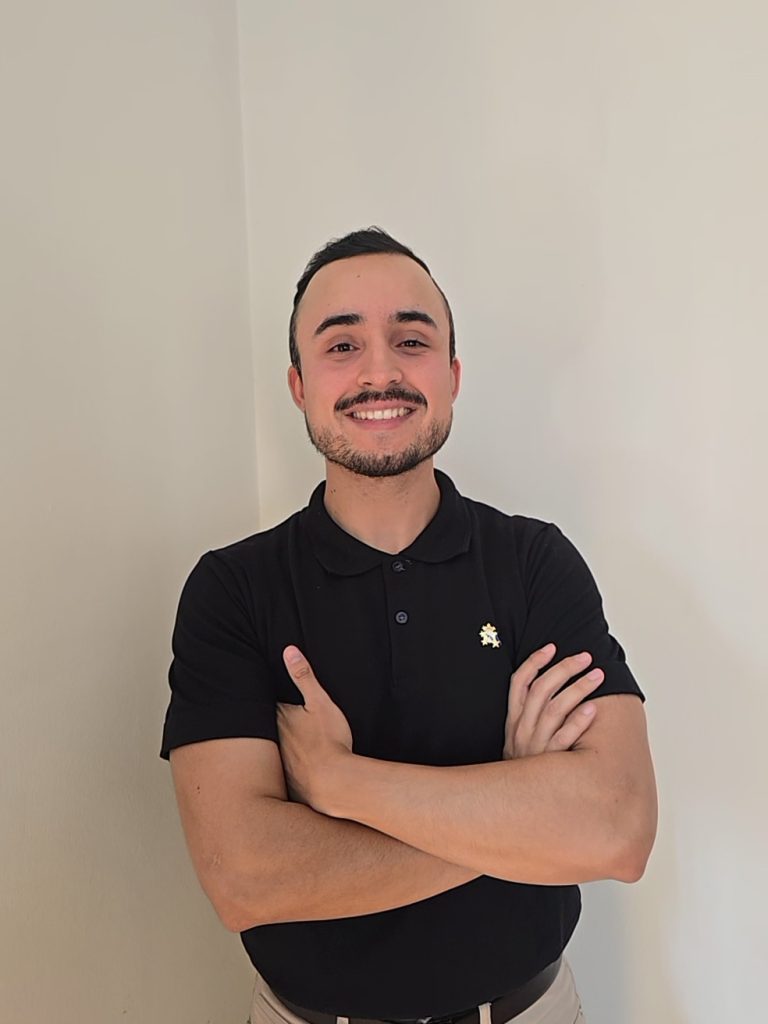Tunning Ingeniería, a company specializing in automation and electric drives for large industrial projects, guarantees the compatibility of its customers’ systems, a key aspect for cybersecurity throughout the entire project lifecycle.
Emanuel Zamorano, Head of Platform and Technology (P&T) at Tunning Ingeniería, is responsible for ensuring that all components of a platform are fully compatible with each other. To achieve this, they are selected based on the technology, model, and brand of the solution to be implemented, with a special focus on design engineering.
The equipment then moves on to the laboratory testing integration stage. “We call these iFAT tests. They allow us to integrate the platform in a controlled environment with fewer components, emulating as closely as possible what will happen in the field,” explains Zamorano. This approach has recently been implemented in projects with Spence and Minera Escondida, both part of BHP.
During the testing phases, manuals, procedures, and documentation are generated that concentrate the knowledge acquired, which facilitates the subsequent implementation of the systems. “In any case, we often also provide on-site assistance to analyze situations that did not arise in the laboratory,” clarifies Emanuel.
Up to date with brand technologies
To meet these demands, Tunning Ingeniería’s professionals are constantly specializing and updating their knowledge of brands, products, and functionalities. The company also has access to exclusive training platforms thanks to its collaboration with its technology partners—Siemens, Rockwell, and Cisco. “They are like academies that allow us to access specialized courses and certifications. There, we learn about product features, how to configure them, and delve deeper into their functionalities,” says Zamorano.
In specific areas such as industrial cybersecurity and artificial intelligence, the teams undergo more specialized training. One of the main areas of study is the IEC 62443 standard, developed by the International Electrotechnical Commission (IEC), which establishes requirements and processes to ensure cybersecurity in industrial automation and control systems (IACS) and operational technology (OT) throughout their entire life cycle.
Tunning specialists also keep up to date with advances in artificial intelligence, enabling them to respond to rapid technological changes and provide greater support to their customers.
Among the most widely used platforms are RAU (Rockwell Automation University), where teams study everything from basic components such as PLCs and controllers, through the HMI interface (FactoryTalk View), to technologies such as DCS PlantPAx. In the case of Siemens, they use the Partner Academy, where they delve into software such as TIA Portal, as well as products, controllers, and peripherals such as smart relays, frequency converters, and other devices.

Emanuel Zamorano, Head of Platform and Technology, P&T, Tunning Ingeniería.
In this way, Tunning Ingeniería’s teams not only contribute to their clients’ operational continuity, but also protect them from cyberattacks.
In a mining project, where we implemented a control system for monitoring leaching piles using wireless instruments, “We demonstrated that we could block ports, segment the network, assign VLANs, encrypt communications, configure and assign frequency bands, generate certificates, and ensure that the link between the gateway and the wireless instruments was protected. This ensured that no other equipment with similar characteristics could access the Wi-Fi network and launch a cyberattack,” concludes Emanuel Zamorano.







